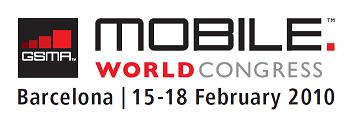James Rosewell writes:
Monday’s Mobile World Congress conference agenda dedicated one of 4 streams to Mobile Money - Transfers, Transactions and Technology allowing all stakeholders to share experiences and debate the future of Mobile and Money.
Two types of service dominated presentations and panel discussions; Near Field Communication (NFC) technology enabling payment at traditional Point of Sale (PoS), and the Mobile Wallet replacing plastic or cash.
The Mobile Wallet is gaining traction in the developing world as a means of securely receiving money sent from relatives who’ve emigrated to the developed world, needing to send money home for relatives. Once established money can be transferred in country, bills paid and financial affairs managed via the small screen of the mobile.
Ultimately this replaces the need for cash and an agent to handle it improving security, reducing fraud and lowering costs. Focus on the large unbanked population and their need is driving transaction growth and customer adoption. MCB Mobile and Fundamo have partnered in Pakistan to bring such services to a potential 90m people who’ve never held a bank account but either do or in the near future will have access to a mobile phone. Nokia announced Nokia Money and a trial in Pune, India, bringing financial services to both banked and unbanked before national deployment later in the year.
In the developed world NFC still dominates the agenda. Japan have deployed 60m NFC capable handsets into the market. However only 20m are being used for NFC. Where they are being used coupons and direct marketing is the application rather than paying for main stream goods and services. Transport related payments for parking and tolls also represent a significant niche. Retailers reluctance to deploy NFC capable POS equipment is surely a key barrier to growth. Even in Japan it is only the high volume, high speed retailers such as McDonalds that are prepared to make the investment.
A trusted brand is an important component for success when deploying mobile money services. Nokia are the number one brand of all brands in India, a key factor in their decision to start in India. MCB are a trusted brand in Pakistan whilst Fundamo are unheard of. Zain Group a Kuwait based telecoms company have secured 12m customers in 8 countries in just over 1 year from launch through partnerships with existing brands. Trusted brands in the developed world will need to work together to drive adoption.
Whilst enabling technology is well established standards are essential to ensure interoperability between different organisations and ultimately providing customers the ability to move money without limitations. Ultimately companies that have not worked with each other before need to form strong partnerships as no one organisation is in a position to provide the end to end service. Forming such strong partnerships in the face of very long lead times to yield a return on investment is providing particularly difficult in some markets and preventing growth. A strong regulator is needed to prioritise Mobile Money, mandate interoperability and provide a framework that allows all parties to benefit.
With so many companies involved in the provision of Mobile Money services the key questions that remains unanswered is “how can everyone make a profit without charging the customer more?” A partial answer is in the form of lower operating costs. However there will need to be an acceptance in developed markets among the financial industry that cannibalisation of existing services will occur and lower margins will be the result.
For NFC to be successful the top selling mobile phones will need to include NFC as standard. It’s clear the general public are not going to purchase a mobile because it supports NFC. This means mobile networks and handset manufactures will need an incentive to make the investment. Apple, HTC, Samsung, Noka, LG, Motorola to name but a few are unlikely to increase the price of their top selling handsets to include NFC without a compelling business case. Such a business case appears a long way away.
